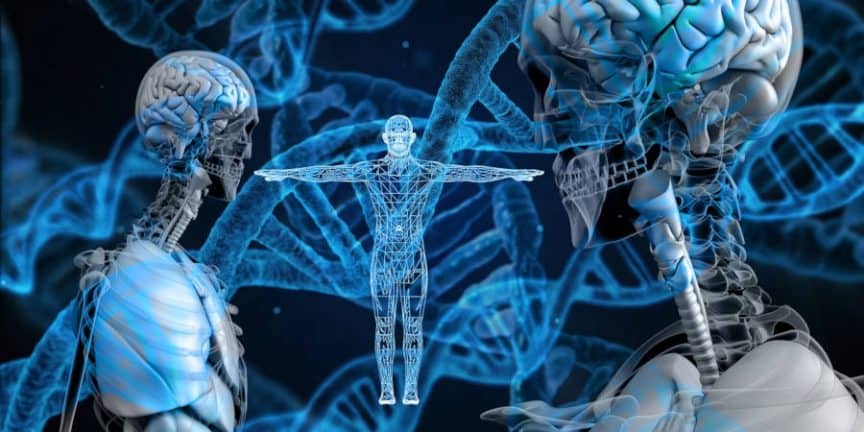Since time immemorial, man has had different theories and myths. Fortunately, science has been our saving grace, fact-checking, and dissecting different beliefs to understand the truth behind them better.
Therefore, until we can scientifically prove a claim or hypothesis, it remains a belief or myth.
Over the recent past, science has tried to study the world of hypnosis, and while there’s still a lot to be done, major steps have already been made.
Are you a hypnosis skeptic? Perhaps you’re a believer in the practice, and you’re trying to convince someone else. Or maybe you’ve seen something about hypnosis, and you want to learn more about the art.
Regardless of the reason, we’d like to look into the science of hypnosis and finally see whether hypnosis is real or some clever sort of pseudoscience.
But first, let’s look at what hypnosis is and what it isn’t.
What is hypnosis?
When you ask this question to most people, they’ll likely reference a movie or pop culture. The entertainment scene developed an interest in exploiting hypnosis decades ago. However, the entertainment industry tried to spruce up the practice, an act that still happens today.
As a result, to most people, hypnosis is what they watch in movies, or read in books, or hear in songs. This will mostly involve the ever-present pocket watch. You’ll also get references to phrases such as ‘you are now getting sleepy,’ or ‘at the snap of my fingers.’ And almost always, it’s one person trying to control others.
However, this couldn’t be further from the facts of hypnosis, but let’s avoid preemption.
Another conventional interpretation of hypnosis is the view of it as a pseudoscience. Simply put, pseudoscience is a variety of beliefs, statements, and practices that are taken as accurate and scientific, but in truth, are incompatible with the scientific methods.
Pseudoscience strongly came to play when people started understanding the power of linking a belief or practice to science. To date, there are numerous of pseudoscience practices that some will swear by.
If hypnosis is neither what we see in the movies, nor is it pseudoscience, then, what is it, and does it have the unparalleled backing of true science – through practical research and studies?
Hypnosis, also referred to as hypnotic suggestion or Hypnotherapy, is a state similar to being in a trans, where you experience increased and focused attention and concentration. Traditionally, hypnosis is done with the aid of a therapist, who uses mental images and verbal repetition.
In most hypnotherapy cases, people talk of experiencing feelings of relaxation, calmness, and bliss – and therefore, more open to suggestions.
The primary use of hypnotic suggestion is to effectively help you cope with a situation, overcome a challenge, or deal with stress and anxiety. However, it is essential to note that during hypnosis, you do not lose control over your behavior.
What does science say about Hypnotherapy?
As formerly mentioned, we use science to fact check any beliefs. Only then can a practice be considered authentic and not a myth or pseudoscience.
In this regard, let’s investigate where science lies on the subject of Hypnotherapy.
For a long time, science and hypnotic suggestions were parallels. However, in the recent past, there have been more studies carried out in the field of Hypnotherapy.
We’ll study these cases, and in the end, you can easily conclude on the authenticity of hypnosis, based on scientific evidence.
Related reading: 13 Valuable Self-hypnosis Benefits you Need to Know – Opens in new tab
1. Observable functional changes in brain activity in patients with dental phobia
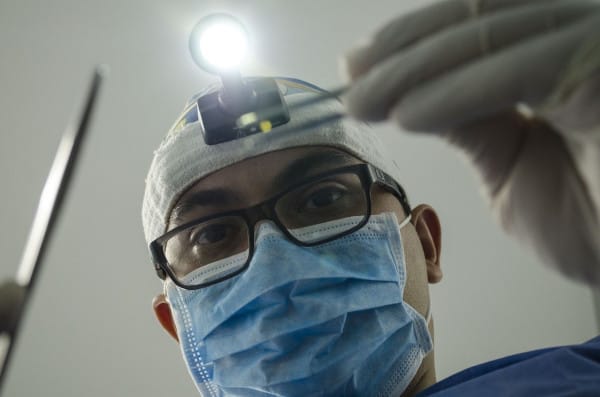
When was the last time you visited your dentist? If you follow the dental guidelines, you probably visit a dentist’s office twice a year –after every six months. However, you can make more visitations if you have a dental issue.
Most people are not huge fans of the dentist, and many will delay the visit until they feel it necessary.
There’s a third category; those who will avoid the dentists at any cost. While most of us do not like dentists, there are extreme cases of dental phobia. In these cases, the patients have a disproportionate and almost unrealistic fear of dental procedures.
Dental phobias will try to avoid dentists, and when they do make the visit, they’ll likely experience fear over being sedated or any use of general anesthesia.
Unfortunately, for some dental procedures, sedation is a prerequisite.
One study, carried out in 2016, sought to help people with dental phobia to overcome the fear and anxiety while undergoing a dental procedure. While it is key to mention the study was the first of its kind, the results were remarkable.
The study involved 24 subjects, split evenly into two groups. The first group included 12 dental phobias, while the rest were to be studied as the control group.
This study showed that hypnosis could be used as a sufficient remedy to calm anxiety-provoking stimuli. The review was thorough, including conducting endodontic treatments and dental surgery with low use of anesthesia.
Additionally, during the study, researchers noted changes in the brain’s fear centers. This was accomplished with the use of functional magnetic resonance imaging (fMRI) machines.
As mentioned above, this is only the first study of its kind to be officially conducted in the past, and while the results are positive, a lot more research does need to be carried out.
That said, from the report, it is evident that hypnotic therapy is a powerful and effective method in helping dental phobics overcome fear.
2. Hypnotherapy and music can help patients with a breast biopsy
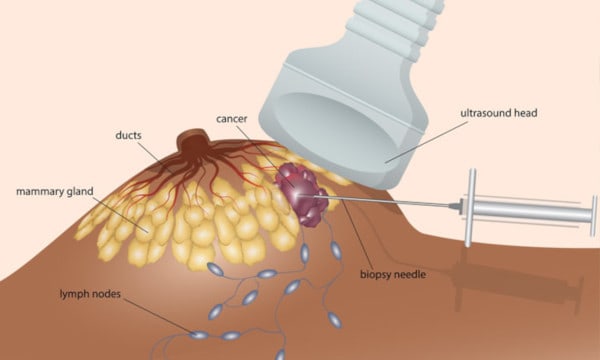
One of the reasons science has become so interested in the world of Hypnotherapy is because of the practical use it can have on today’s medication to various illnesses and conditions.
Fashioned by this ideal, a study was carried out to investigate if hypnosis can –either on its own or coupled with another media, have any practical medication solutions.
The study involved 75 patients who had undergone a breast biopsy. The research required them to be separated into three groups; one was to focus on music only, the second would join both music and hypnotic suggestion, and the third was to be the control group.
Before the breast biopsy, the second group was subjected to relaxing music with negligible amounts of anxiety and stress.
After the study, it was noted the second group presented lower levels or registered pain or anxiety as well as increased optimism.
Related reading: The Advantages of Hypnotizing yourself and a Simple Process to Do it – Opens in new tab
3. Hypnotic suggestion can help treat insomnia in young children

Growing up, sleep is an essential part of a healthy and well-balanced lifestyle. Unfortunately, some children suffer from insomnia, which not only denies them the joy of sleeping but the health benefits associated with resting.
A 2006 study wanted to investigate the correlation between insomnia in school-aged children and hypnotic suggestion.
The study was carried out on 84 young patients of different ages, who all suffered from insomnia. While the results of 9 of the kids were lost during follow-up, the remaining 75 patients provided conclusive data.
From the study, the researchers concluded that hypnosis is an effective way to help school-going children deal with insomnia. It was also noted the younger the children were, the more positive the results were.
This means in the future, and with extensive research, we can help kids sleep better without ever having to worry about insomnia.
Check out our recommendations at “Hypnosis & Self-hypnosis Bookshelf” – Opens in new tab
4. Treating HIV Neuropathic pain through hypnosis
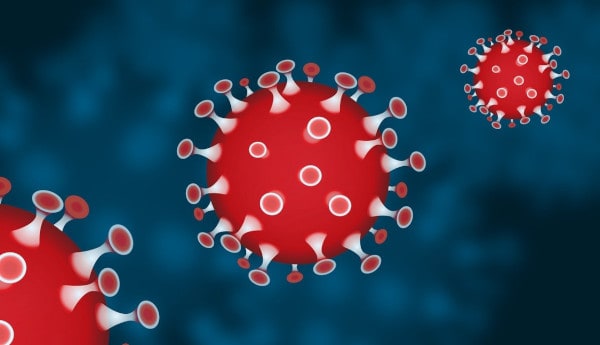
The effects of HIV on the body have been pretty well documented over the recent past. One of the most painful disorders HIV patients experience is HIV-DSP – HIV distal sensory polyneuropathy.
This disorder attacks the nervous system, leaving the patient unable to care for themselves or to enjoy the pleasures of quality life.
This study involved 36 volunteers with HIV-DSP and would receive three lessons every week concerning self-hypnosis.
For unaltered results, the researchers recorded the patient’s pain levels seven weeks to the start of the study, during the study, and seven weeks after.
Additionally, the participants were asked to keep up with the practice, with a final reading of their pain progression being taken 17 weeks later.
At the end of the study, 72 % of the participants registered improved pain scored, making hypnosis an effectual remedy to HIV-DSP.
5. Hypnotherapy can relieve Irritable bowel syndrome
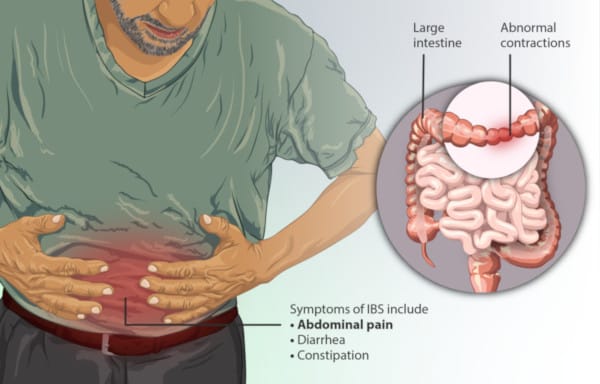
Irritable bowel syndrome, commonly referred to as IBS, is a common disorder that affects countless people around the globe.
IBS cases are widely associated with health issues such as abdominal pain, cramping, gas, constipation, bloating, and diarrhea.
This study was more meta-analytical, meaning a statistical and numerical procedure where you combine data from various studies.
The cumulative study investigated a sample size of 464 patients with IBS from 8 different and completely randomized trials.
The results showed Hypnotherapy was not only safe to use against IBS, but more than 54 % of the patients recorded long-term relief.
6. Hypnotherapy intervention used as a hot flash treatment in breast cancer patients

Amongst breast cancer patients, hot flashes are categorized as one of the most significant problems. Ergo, researchers wanted to determine if there was a connection between relieving the hot flashes using Hypnotherapy.
The study was conducted on 60 breast cancer surviving females, who were randomly set into two different groups. The first group received hypnotherapy treatment for five weeks, while the second group was established as the study control.
The results showed a 68% reduction rate in hot flashed for the first group, while no change was noted in the second group.
This goes to show Hypnotherapy can be used as an effective treatment to hot flashes.
Additionally, the participants who underwent Hypnotherapy showed reduced levels of depression and anxiety, as well as better sleeping routines and patterns.
Related reading: Want to Know if Self-Hypnosis Really Works? Do this test. – Opens in new tab
7. The hypnotic suggestion as a CABG premedication technique
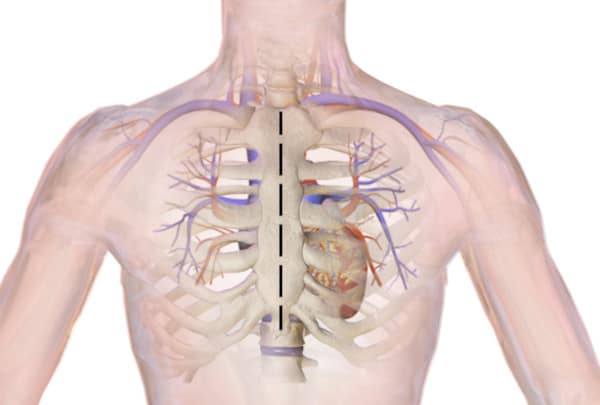
Any surgery will get you thinking about the dangers and everything that could go wrong. This feeling intensifies when the operation involves the heart.
As a result, researchers investigated the results of clinical Hypnotherapy in patients who were undergoing coronary artery bypass grafting (CABG).
The study involved 44 patients with upcoming CABG surgeries. The number was split into two groups, with only one group receiving a clinical hypnotic suggestion from the anesthesiologist before the surgery.
The second group received necessary information on the operation from the anesthesiologist.
The results showed lower depression and anxiety levels in the groups that had a hypnosis session as compared to the one that got general surgery information.
Therefore, hypnosis proved as an effective method to reduce presurgery anxiety. Additionally, the group that had Hypnotherapy showed reduced levels of ventilator assistance and pain levels after the CABG surgery.
8. Hypnotherapy can reduce pain in hospitalized older patients

As we’ve at various points above, Hypnotherapy has been linked with pain reduction in one form or another. If effective, it can be a great alternative to the many pain medication you have to take when in pain.
A study registered in 2015 sought to find if Hypnotherapy could really alleviate pain. The study was specifically tailored for the older generation, who experience a higher pain intensity, as well as more side effects from modern medication.
The study had 53 patients who were randomly separated into two groups.
The first group received massage therapy only, while the second group had hypnotherapy sessions. Both groups showed significant pain reduction afterward.
However, the second group –who had hypnotic suggestions, recorded better pain management. Moreover, the hypnotherapy group also showed a reduction in their relative depression rates.
Check out our recommendations at “Hypnosis & Self-hypnosis Bookshelf” – Opens in new tab
9. Self-hypnosis can help reduce childbirth pain

Childbirth pain is –anecdotally recorded as one of the most intense and unbearable pain. While this is debatable, it is evident that childbirth is no easy walk in the park.
Before looking at the study and the results achieved, first, you do need to know the study was a little different from the others highlighted here. This was a thematic network analysis.
This means pinpointing patterns, extracting them, and recording the patterns. It is one of the most used forms of analysis, especially in qualitative analysis.
From the 343 women who were to participate in the study, the researches focused on 48 of them.
The results from the 48 showed a heightened rate of certain positive feelings such as confidence, calmness, and empowerment. Self-hypnotherapy, therefore, can lead to an easier child delivery process.
10. Hypnotherapy can influence pain resilience and reduce the inflammatory cytokine IL-6

Before diving into the study, it is crucial to mention there is still a lot of research to be done on the subject. However, the preliminary results have been promising, and projections show a lot of positive feedback should be expected with subsequent studies.
While the pain resilience bit is clear and straightforward, you should get to know more about IL-6. IL-6 has been known for its stimulation of the autoimmune and inflammatory processes of various illnesses.
These include prostate cancer, diabetes, rheumatoid arthritis, depression, and more.
This study involved 11 patients, who were given a 12-week assignment of listening to hypnotherapy sessions. And after the 12 weeks, the study observed the IL-6 levels, which had significantly lowered.
Additionally, the subjects reported better coping mechanisms in situations that would ordinarily have them worried or stressed, whether in the workplace or at home.
Check out our recommendations at “Hypnosis & Self-hypnosis Bookshelf” – Opens in new tab
11. Hypnosis can lead to less intensive labor experiences
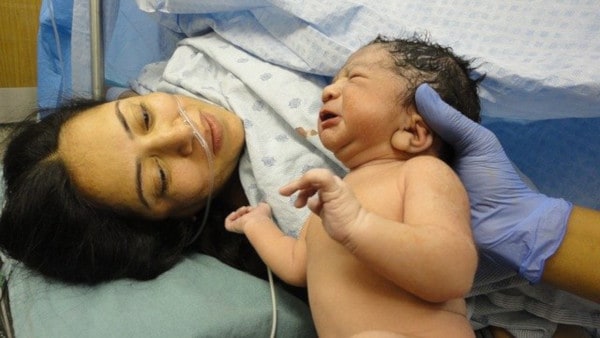
As aforementioned, labor pain is one of the most unbearable pains known to man. From this, science has been looking at various ways to make the pain less intensive, and Hypnotherapy is one of the cause’s frontrunners.
While there are a lot of modern medicine options available today, more people are turning to alternative sources that would have little to no chance of harming either the baby of the mother.
In 2013, a study gathered 1,222 women to examine if hypnotic suggestions could help reduce the labor pains.
The only criteria to qualify were women who hadn’t gotten pregnant before. The women were split into three groups.
The first group was taught self-hypnosis. The second group was trained on various relaxation techniques, and the third group received standard quality care.
The final results indicated the first group had an easier time relaxing than the other two –and this made the labor process more bearable.
12. Hypnotherapy can treat hot flashes in postmenopausal women

Another group plagued by hot flashes is older women who are past their menopausal stage.
For a long time, the medication given for such cases was progesterone and estrogen supplements, which many have raised safety concerns over.
In a bid to look for an effective yet safe alternative, science turned to clinical Hypnotherapy. In a 2013 study, researchers sought to understand the effect of clinical Hypnotherapy to treat hot flashes in postmenopausal women.
The study brought together 187 subjects for five weeks. The results showed a significant reduction in hot flashes from self-reported cases.
Related reading: How long does Hypnosis take to work and how does it work in the brain? – Opens in new tab
13. A brief hypnotic suggestion session can help with breast cancer surgery patients

After breast cancer surgery, patients complain about several side effects that may include nausea, pain, and fatigue.
Science has been trying to get an effective way to either eliminate or reduce the side effects while maintaining the integrity and quality of the surgical process.
A 2007 clinical trial was conducted on 200 women set to undergo breast surgery, both lumpectomy, and biopsy. The subjects were randomly selected, with one half receiving a 15-minute hypnotherapy session before the surgery, and the other half used as a control.
The patients who underwent hypnosis showed better recovery from the surgery. Most importantly, they experienced fewer side effects as opposed to the control group.
Finally, the group that had hypnosis shaved an average of 10% from their medical bill, which in this case, was close to 1,000 dollars. This is due to quicker recovery time and a lesser need for medication post-surgery.
14. Hypnotherapy can help control chronic pain

Various factors can cause chronic pain. Regardless of the causative, the pain can be rather unbearable.
Equipped with the knowledge of how hypnosis affects pain reception, in 2013, researchers questioned if hypnosis would be effective in severe chronic pain.
The study used a functional magnetic resonance imaging scan (fMRI) to study how the brain of a subject suffering from chronic pain would react, both before and after a hypnotic suggestion therapy.
The fMRI scans found significant changes after the hypnotic sessions, concluding that Hypnotherapy can be used as a sort of sedative or analgesic against chronic pain.
15. Hypnosis helps with fatigue from radiotherapy

Radiotherapy can be very advantageous, although it comes with an array of adverse effects, such as increased fatigue.
One study had 200 patients who either received cognitive-behavioral therapy and hypnosis (CBTH) or were part of a control group.
The group that underwent the CBTH process showed reduced fatigue levels, as far as six months after the sessions.
16. Hypnotic suggestion can be used in embryo transfer
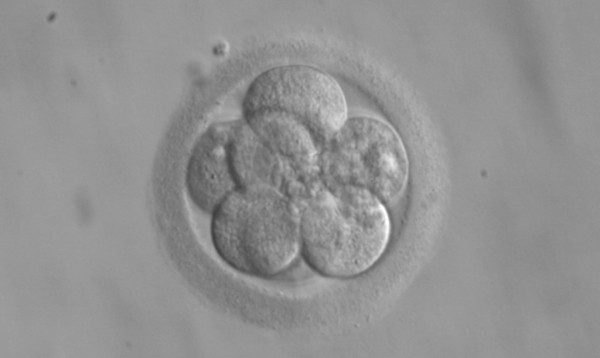
In 2006, a study was undertaken to see the effect hypnosis would have during embryo transfer, especially in comparison to diazepam.
The study had 94 participants, half of whom received diazepam before embryo transfer and muscle relaxation. The other half received Hypnotherapy and a placebo.
The results concluded that both groups had averaged the same success levels, proving that Hypnotherapy can be used instead of diazepam.
17. Cognitive Hypnotherapy helps fight depression

Curious on the effect hypnotherapy would have on depression, researchers gathered 84 patients suffering from depression.
They were split into two, with the first group receiving cognitive hypnosis treatment (CH) and the other getting cognitive-behavioral therapy (CBT).
After 16 weeks, both groups had shown significant improvements in the depression levels exhibited at the start of the study.
However, the CH side showed more impactful changes in the Beck Anxiety Inventory, Beck Depression Inventory, and Beck Hopelessness scales.
18. Hypnosis helps pain management in patients with sickle cell disease

Sickle Cell Disease is often accompanied by unbearable stab-like pain. While this is the first study of its kind, the results were promising, and we should expect more similar studies in the future.
This study had 28 subjects, half of whom had sickle cell disease. The results showed not only better pain management from the subjects with SCD, but the hypnotic suggestion sessions affected peripheral blood flow changes.
This helped them understand how hypnosis can effectively manage vasoconstriction (constriction of blood vessels) in patients with sickle cell disease.
19. Hypnosis can lead to faster wound healing and pain reduction in pediatrics with acute burns

This study involved children aged between 4 and 16. The study looked at how fast the wounds healed as well as pain intensity during treatment and subsequent checkups and wound dressing.
The study showed the group that received hypnosis registered 70% and 67% lesser pain and anxiety levels as opposed to the group that only got standard care.
By the time the wounds were being dressed for the third time, the hypnosis group registered 90 % and 84 % lower pain and anxiety levels in comparison.
In closing, these are all benchmarking studies that have been carried out over the last decades or so.
While there is a relatively powerful spotlight on hypnosis from the scientific side, a lot more needs to be done. It is only with more studies that we can understand the extent to which hypnosis can benefit our health and lives.
Stay in Touch
 Join our newsletter by using the forms on this website or click here!
Join our newsletter by using the forms on this website or click here! Follow us on Google News
Follow us on Google News Follow us on Facebook
Follow us on Facebook
Featured Image by Gerd Altmann from Pixabay
Check out our recommendations at “Hypnosis & Self-hypnosis Bookshelf” – Opens in new tab

